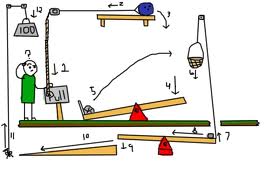Dear Jesus,
I know I have done wrong things that have made Your heart sad. Thank you for paying the price for my mistakes with your life. I want to accept Your gift of forgiveness and live my life in a way that makes You smile. Please help me learn how to make You happy as I grow into the person You want me to be. I love you! In Jesus name, Amen.
A church member gave me a few teddy bears to distribute to young children who might be frightened, grieving, or coming through some family crisis. Attached to each bear was a little heart-shaped card on which was printed this prayer.
or coming through some family crisis. Attached to each bear was a little heart-shaped card on which was printed this prayer.
The prayer struck me as pretty odd, inappropriate really. If the child wasn’t disturbed before, that prayer just might do it! I’ll let the psychologists and child development people among you comment on that angle. I was trying to think more in a theological vein. Are these the words, the first words, we want to put into the mouth of an upset child? I have no problem with confession of sin. Depravity sits well with me. But is this the first thing a child, or a person of any age, should be praying?
All of this stirred up something of a hobby-horse of mine—the significance of good order, appropriate sequences in our theology. An embarrassingly peculiar hobby, I’ll confess. But does it matter what we as Christians say first, in what order our theology unfolds? Often when I hear or read something theological, I think, “Not necessarily a wrong statement, but do you want to say that then and there?”
For example, I enjoy seeking out the dusty little brochures that clutter church vestibules. “What We Believe” is usually on the cover, along with some dated religious clip-art. Most frequently, item number one is something about the Bible. “We believe the Bible is the inspired and infallible Word of God.”
Whatever you may think of such a statement, here I’m more concerned if this is the first, the foremost thing, we want to tell the world. There is some precedent for beginning this way. Many works of systematic theology begin somewhat similarly. Our own Belgic Confession falls along such lines. What is unfortunate, I believe, is that these beginnings contribute to “foundationalist” ways of thinking. “If we just get our sources right, the correct information, then we can build on that foundation.” Not only do we spend too much energy defending scripture, often relegating Christ to Point IV or VI of those “What We Believe” brochures, I’m simply not convinced this foundationalist way of working is true to the Gospel. Certainly, it doesn’t have the vibrancy of “Jesus is Lord!” A few years back, when asked to write a short statement for our congregation’s webpage, I began, “We believe that in Jesus Christ, God has…”
Order and flow to theological statements gives priority to things. And if theology truly is “narrative” then it should unfold and move. There is energy, urgency, direction.
Part of what makes question and answer one of the Heidelberg Catechism so poignant is that it comes first. And the Catechism’s famed three-fold, guilt-grace-gratitude structure is an example of the beauty and power of sequence. Calvin scholars often point out the significance of his reordering later editions of The Institutes so that election is seen through the lens of Christ, rather than Christ seeming to be in the employ of election. Another example from my “Intro to Theology” years ago: we were told that most of the time God should be the noun and we should be the direct object.
 Nonetheless, I’ll confess that in my preaching increasingly I don’t take my own advice. Once upon a time, I probably overthought, spending inordinate amounts of time on transitions and bridges, almost as if I were a prosecuting attorney trying to lay out the perfect closing argument, an air-tight case. Should sermons be crafted like Rube Goldberg devices where this falling ball releases that yo-yo which strikes this domino? I wonder if people really listen that way. Sometimes now my preaching is more “impressionistic” —a glob here, a dollop there. “If that splotch didn’t land on you, maybe this next one will.” And probably what applies to sound theological statements doesn’t necessarily transfer to good preaching.
Nonetheless, I’ll confess that in my preaching increasingly I don’t take my own advice. Once upon a time, I probably overthought, spending inordinate amounts of time on transitions and bridges, almost as if I were a prosecuting attorney trying to lay out the perfect closing argument, an air-tight case. Should sermons be crafted like Rube Goldberg devices where this falling ball releases that yo-yo which strikes this domino? I wonder if people really listen that way. Sometimes now my preaching is more “impressionistic” —a glob here, a dollop there. “If that splotch didn’t land on you, maybe this next one will.” And probably what applies to sound theological statements doesn’t necessarily transfer to good preaching.
Somehow order and flow still do matter in theology. No matter what, I would never make the “teddy bear prayer” above, be the first thing I’d say to an upset child. What sort of prayer do you attach to a teddy bear?

